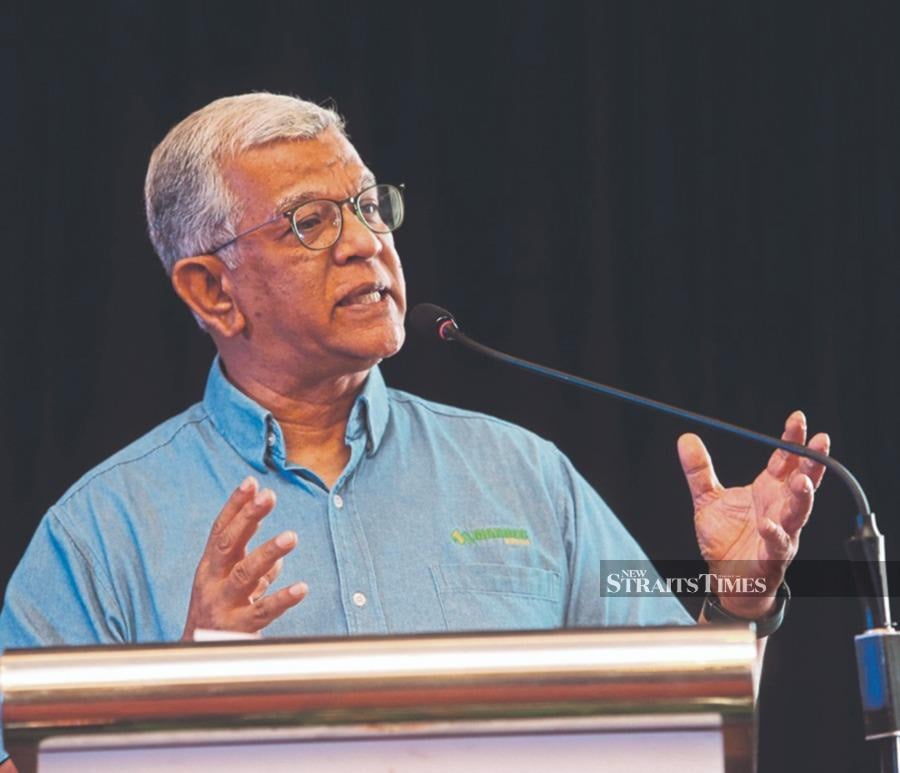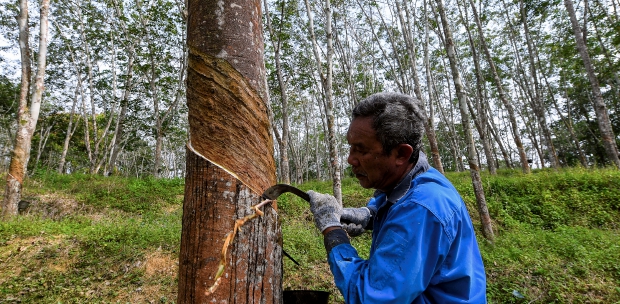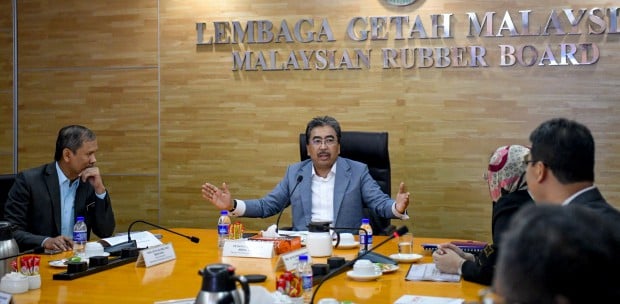BANGI: Rubber experts have called for industry smallholders to seek creative ways to expand rubber usage and improve its price in the global market.
Although some deemed the rubber business as a sunset industry, experts rejected that view and assured smallholders that the commodity would always be needed in industries such as aviation and automation.
Malaysian Rubber Development Corporation Bhd (Mardec) chief executive officer Syed Mahdhar Syed Hussain said there were items in various industries that required natural latex for optimum performance.
"Some things cannot be made with synthetic latex, including the tyres for airplanes. They must use 70 per cent natural latex.
"Natural latex is one of the products that has very low heat build-up and that is why these tyres will not explode even during high impact landing," he said in his presentation at the National Direction Seminar for Rubber Industry Smallholders recently.
He drew a parallel between rubber and coffee, where he said coffee beans had been around for decades and were used for many different purposes.
"We can make rubber No. 1 because it is a sustainable industry. During the Covid-19 pandemic, billions of nitrile gloves were made but, unfortunately, they are not biodegradable. That is an environmental problem.
"However, natural rubber is biodegradable and, therefore, sustainable," he added.
Meanwhile, the Malaysian Rubber Board deputy director-general for policy and operations Hairul Irwan Jamaluddin said smallholders needed to be aware of the expiry dates of Rubber Transaction Authority Permit (PAT-G) cards.
With the cards, smallholders are eligible to receive the government's Rubber Production Incentive (IPG) and other related assistance.
"There are about 70,000 PAT-G cards that have expired. The government had launched a mobile counter to facilitate renewals for smallholders.
"If these cards have expired, we cannot give incentives to those smallholders," he said.
He added that based on research done recently, several smallholders had valid cards but had shifted their crops to palm oil.
"If we pay (incentives) without verifying the PAT-G cards, there will be a massive leakage. That is why we need to adhere to the standard operating procedure."
On the prospects of rubber prices for next year, Hairul said global demand was expected to exceed supply due to the decline in areas for rubber plantations in Thailand.
Other positive factors that could contribute to the price increase include an estimated Brent oil price of US$94 per barrel following inventory reduction as well as the rise in car sales.
Conversely, negative factors that could drag down rubber prices include a slowdown in global economic growth and geopolitical tensions.
On the usage of rubberwood in the furniture industry, Malaysian Timber Industry Board deputy director-general (management and operations) Saiful Bahri Saleh noted rubberwood was among the most popular among local furniture manufacturers.
Last year, the export of locally-made furniture contributed RM11.15 billion to the economy, with the United States accounting for 56.3 per cent of the total share, or RM6.27 billion.
However, he said some rubber tappers as well as smallholders were unaware of the lower value for rubberwood if it was tapped the wrong way.
"The price of latex was high during the pandemic and we noticed that most rubber farmers tapped their trees only to get latex, without considering that the manner in which they tapped could devalue the quality of the wood.
"When we cut these trees to obtain rubberwood, we realised the quality had dropped significantly.
"This is why we provide training for estates so that they can tap the trees the right way and ensure the rubberwood quality is maintained," he added.
The seminar was facilitated by the Rubber Industry Smallholders Development Authority and attended by 400 participants.
It is an initiative by the Rural and Regional Development Ministry to ensure the wellbeing and prosperity of more than 500,000 smallholders in the country.






